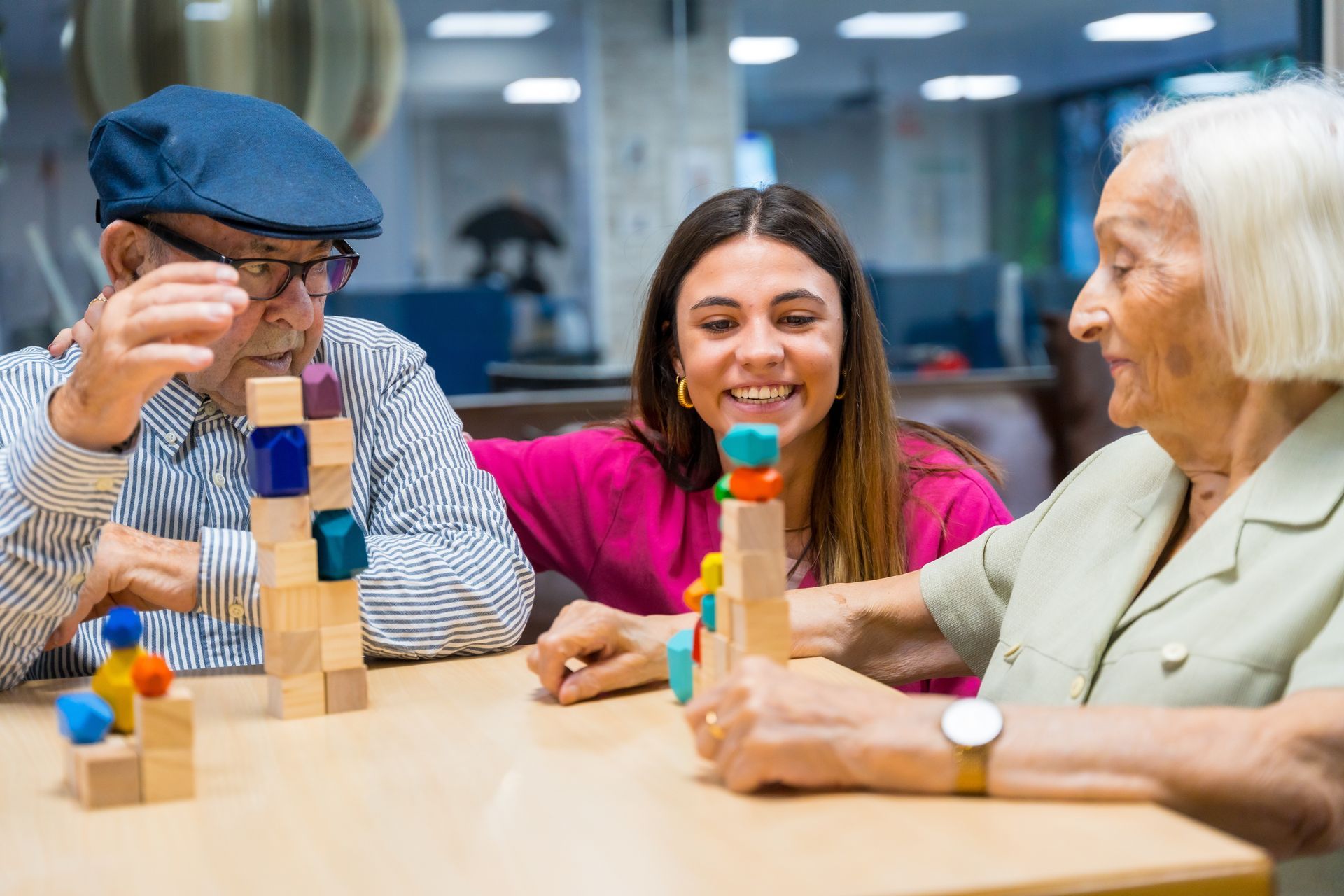BLOG
Easing the Transition: Tips for Helping Your Loved One Adjust to Assisted Living
Transitioning a loved one to an assisted living community is a significant life change, often accompanied by emotional and logistical challenges. Ensuring a smooth adjustment requires thoughtful planning, open communication, and a supportive environment. By focusing on practical strategies, families can help their loved ones embrace this new chapter with confidence and comfort.
It is crucial to understand the nuances of assisted living and the specific services offered by communities like Assured Senior Living. This knowledge empowers families to make informed decisions that align with their loved ones' needs and preferences.
1. Emotionally Prepare for the Transition to Assisted Living
Emotional readiness is a foundational aspect of transitioning to assisted living. Engaging in open and honest conversations about the move can alleviate fears and misconceptions. Acknowledging and validating your loved one's feelings during this period is essential. Providing reassurance about the benefits of assisted living can help in easing anxieties.
Involving your loved one in the decision-making process fosters a sense of control and autonomy. Discussing preferences regarding living arrangements, daily routines, and personal belongings can make the transition more personalized. Encourage them to express their concerns and desires openly. This collaborative approach can significantly reduce resistance to the move.
Seeking support from professional counselors or support groups can provide additional emotional assistance. These resources offer a platform to share experiences and coping strategies. Understanding that feelings of loss and apprehension are normal can be comforting. Professional guidance can equip both families and seniors with the tools to navigate this emotional journey.
Maintaining familiar routines as much as possible during the initial phase can provide comfort. Consistency in daily activities helps in establishing a sense of normalcy. Encourage participation in community events to build new social connections. Balancing old routines with new opportunities can facilitate a smoother emotional adjustment.
2. Personalize the New Assisted Living Space
Creating a familiar and comfortable environment is key to helping your loved one feel at home. Incorporating personal belongings, such as cherished furniture, photographs, and mementos, can make the new space inviting. Familiar items serve as tangible connections to their past, providing comfort. This personalization reflects their unique identity and preferences.

Consider the layout and functionality of the new living space to ensure safety and accessibility. Arranging furniture to allow easy movement can prevent accidents. Adequate lighting and the placement of essential items within reach are practical considerations. A well-organized space promotes independence and confidence.
Involving your loved one in decorating decisions empowers them and fosters a sense of ownership. Collaborate on selecting color schemes, bedding, and decorative items. This joint effort can be an enjoyable activity that strengthens your bond. Personal involvement ensures the space truly feels like their own.
Introducing elements that cater to their hobbies and interests can enhance the homeliness of the space. For instance, setting up a small reading nook or a crafting area can encourage engagement in favorite pastimes. These dedicated areas serve as daily reminders of their passions. Engagement in familiar activities promotes a sense of purpose and joy.
3. Facilitate Social Connections
Social interaction is vital to overall well-being, especially during transitional periods. Encourage your loved one to participate in community activities and events. Engagement in social gatherings fosters a sense of belonging and reduces feelings of isolation. Building new friendships can significantly enhance their quality of life.
Assisted living communities often offer a variety of clubs and interest groups. Exploring these options can help your loved one find activities that align with their passions. Participation in group activities provides structure and routine, and shared interests serve as a foundation for meaningful connections.
Regular family visits and involvement are crucial in maintaining strong support systems. Scheduling consistent visits provides something for your loved one to look forward to. Family participation in community events can deeply integrate your loved one into their new environment, reinforcing their sense of being valued and loved.
Encouraging your loved one to share their skills or knowledge with others can boost self-esteem. Whether it's leading a workshop or simply sharing stories, these interactions validate their experiences. Contributing to the community fosters a sense of purpose. Active participation enriches both their lives and those of fellow residents.
4. Manage Health and Wellness
Prioritizing health and wellness is essential during the transition to assisted living. Ensuring that your loved one's medical needs are met requires collaboration with healthcare providers. Regular check-ups and open communication about health concerns are vital. Proactive management of health issues can improve overall well-being and prevent complications.
Assisted living communities offer personalized care plans to address individual medical needs. Reviewing these care plans with staff ensures they align with your loved one’s health requirements. Clear communication about medications, dietary restrictions, and therapy needs is essential. Coordinating with the care team provides continuity in treatment.
Nutrition plays a critical role in maintaining energy and overall health. It is important to ensure access to well-balanced meals that accommodate dietary needs. Encouraging hydration and proper nutrition supports cognitive and physical function. Assisted living communities often provide meal options tailored to residents' needs.

Physical activity helps maintain mobility, strength, and independence. Many assisted living communities offer structured exercise programs suitable for various ability levels. Encouraging participation in walking groups, chair yoga, or stretching classes can improve quality of life. Regular movement reduces the risk of falls and promotes cardiovascular health.
Mental and emotional well-being should not be overlooked. Access to mental health support, such as counseling or therapy, can help manage stress and anxiety. Engaging in hobbies, mindfulness practices, and social activities fosters a sense of purpose. A strong support network of family, friends, and caregivers enhances emotional stability.
5. Encouraging Independence While Providing Support
Helping your loved one maintain independence can ease the transition into assisted living. Encouraging autonomy in daily activities fosters confidence and self-sufficiency. Assisted living communities provide structured support without limiting personal freedom. Finding the right balance between assistance and independence is key.
Promoting decision-making opportunities allows your loved one to retain control. Letting them choose their daily schedule, meals, or activities reinforces autonomy. Encouraging them to express preferences in care and lifestyle decisions is empowering. Feeling in control of their environment reduces anxiety and frustration.
Technology can support independent living while ensuring safety. Devices such as emergency call buttons and medication reminders provide peace of mind. Familiarizing your loved one with simple technology, such as video calls, enhances communication. These tools help maintain independence while offering security.
Encouraging involvement in daily tasks fosters a sense of purpose. Simple responsibilities, like organizing personal items or assisting with light household duties, provide routine. Feeling productive contributes to mental well-being and a positive outlook. Small, meaningful tasks help maintain dignity and engagement.
Reassurance and encouragement are essential in promoting independence. Recognizing achievements, no matter how small, builds confidence. Acknowledging efforts to adapt to new surroundings reinforces resilience. A positive mindset contributes to a successful transition.
6. Stay Engaged with Your Loved One After the Move
Continued family involvement is essential for a smooth transition to assisted living. Regular visits help maintain emotional connections and provide reassurance. Scheduling consistent check-ins shows ongoing support and commitment. Familiarity with their new environment can help loved ones feel more comfortable.
Participating in community events strengthens bonds and fosters a sense of belonging. Attending social gatherings, family nights, or recreational activities together enhances the experience. Engaging in shared activities provides enjoyable moments and lasting memories. Active participation strengthens the connection between residents and their families.
Listening to concerns and addressing them promptly shows ongoing care. Checking in about their experiences helps gauge their comfort and satisfaction. Encouraging open conversations ensures that any issues are resolved quickly. A supportive approach reinforces trust and emotional security.
Encouraging your loved one to stay involved in hobbies and interests enhances the quality of life. Participation in creative activities, book clubs, or gardening keeps them engaged. Recognizing their interests and celebrating achievements fosters a positive outlook. Engagement in meaningful activities contributes to happiness and fulfillment.
Helping Your Loved One Thrive in Assisted Living
The transition to assisted living is a major life change, but it can be a positive experience with the right approach. Emotional preparation, personalizing their space, and encouraging social engagement ease the adjustment. Prioritizing health, independence, and ongoing family involvement ensures continued well-being.
Assured Senior Living provides compassionate, personalized care that supports every stage of this transition. With a focus on comfort, dignity, and engagement, their communities foster a welcoming environment. Families can trust that their loved ones will receive high-quality care tailored to their needs.
If you are considering assisted living for a loved one, Assured Senior Living offers a supportive and enriching experience. Their dedicated team ensures each resident feels valued, secure, and engaged. Contact Assured Senior Living today to learn how they can help your loved one thrive.















